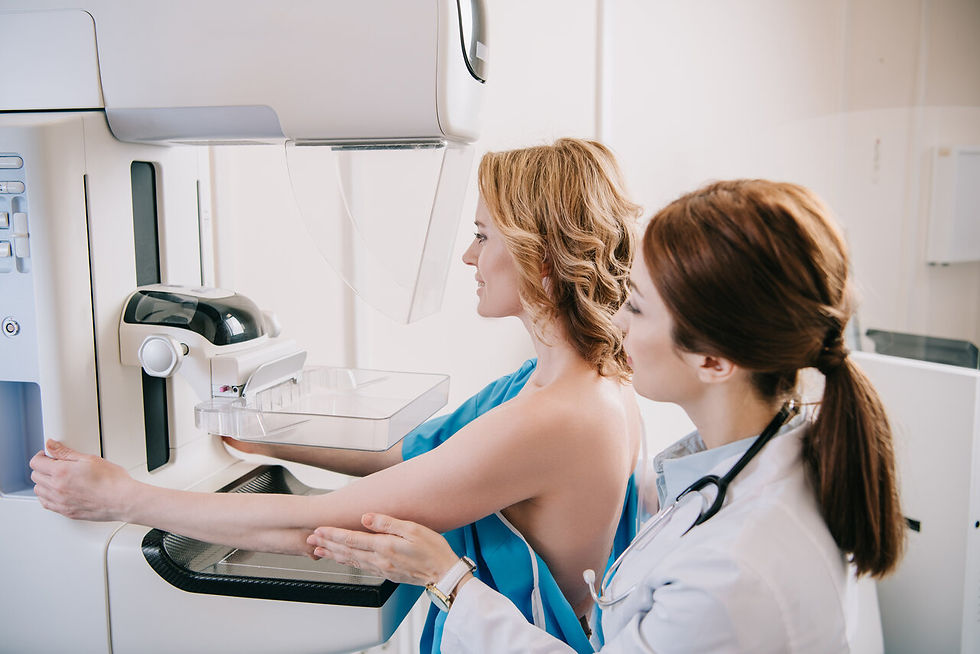What Nurses Teach Us About Empathy
- Patti Steckler
- Sep 15, 2025
- 3 min read
On a Monday morning, six weeks ago, I went to my primary care doctor for help with shortness of breath. With concern writ large on her kind face, she said, “I think you should go to the ER.” As an avid daily walker with a two-plus-mile habit, I was startled and reluctant. She suggested we make four loops around the hallway to double-check my breathing. By loop three, I could barely breathe and was sold, albeit reluctantly, on the ride by ambulance, my first ever, to a nearby hospital.
I was admitted to the ICU and settled into bed when Sam introduced himself: “I’ll be your nurse from 7 p.m. until 7 a.m.” Sam’s gentle manner and soft voice immediately put me at ease. “You’re one of only two patients I’m looking after tonight, so don’t hesitate to press the red call button if you need anything,” he said. Indeed, Sam came to the rescue whenever I called.
Nurses have held the top spot for trustworthiness in the U.S. for over two decades, according to Gallup polls. However, they are often undervalued, overworked, and rarely care for themselves as selflessly as they tend to others. “Nurses are the backbone of the hospital system. They help people at their most vulnerable,” said Dr. Peg Pipchick, a clinical psychologist and advanced practice nurse.
In the wee hours when sleep eluded me, Sam knelt by my bed, and we talked. This was my favorite time. “Do you like working in the ICU?” I asked. “Yes,” he said, “It’s the best nursing job I’ve had. I feel I can make a difference by easing patients’ physical pain and relieving their anxiety.” “Did you have a job you didn’t like?” I asked. “Yup, and I almost quit nursing.”
“I worked in a nursing home where patients were warehoused; their eyes were dull and lifeless, as if someone had extinguished the light of life. Rarely were these patients lifted out of bed to sit in a chair or brought outdoors. Pressure ulcers proliferated. I couldn’t stand it,” explained Sam with a sad, faraway look. When I left Sam to go to the Johns Hopkins Hospital, better suited to my cardiac needs, I held his hand and said, “Please tend to yourself as well as you cared for me.”
Nurses in the ICU unit work 12-hour shifts, often racing from one patient to the next. Even after helping critically ill heart transplant patients, they respond to requests for glasses of water, a guide to the bathroom, or extra blankets with “perfect,” “of course” or “no worries.”
Too often, when patients are hospitalized, their dignity is erased. Autonomy flies out the window as soon as the shapeless, open-at-the-back gowns are donned. Add the lack of showers and unbrushed teeth, and one can feel like an anonymous mess. Good nurses counter that depersonalized feeling by handling patients’ bodies with tenderness and respect. From feeling like an old frump in an unfashionable gown, the nurses restored my self-respect and elevated my spirits. They were collaborators who valued my opinion and guardian angels who gently ministered to me.
What if all people were as kind and compassionate as nurses, I wondered.
Was everything perfect, you might ask? “Almost,” I’d say. Two pet peeves arose: being called “dearie” by one nurse and a doctor who made eye contact with my husband instead of me. I wanted to fly a giant banner across the sky that blared: “Never call older people dearie,” on one side, and, on the flip side, “Make eye contact and talk directly to patients.”
One evening, a phlebotomist came to draw blood — my fourth blood draw that day. She looked sad and harried, jolting me out of my “woe is me” thoughts, to ask about her. “Do you really want to know? No one ever asks me how I am. Patients cringe when they see me coming.”
She put aside her cart and walked hesitantly to my bed. Her eyes were pools of sorrow, as she said, “My husband died precipitously of brain cancer last year at 52,” she said. “We loved each other, always.” Then, moving closer to me, she said, “Thank you for caring about me.”
Kind, compassionate care creates trusting bonds between people. Nurses are the champs of compassionate care, and they can show us how to be our best selves



Comments